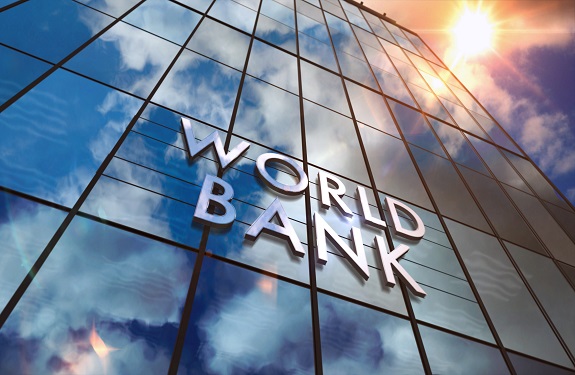CAIRO/TUNIS: The world's top wheat importer Egypt said Wednesday it is to receive $500 million from the World Bank to alleviate the impact of war between its main suppliers Russia and Ukraine. "The World Bank financing will support the government's efforts to meet food needs and enhance resilience to future shocks," International Cooperation Minister Rania Al-Mashat said in a statement.
Egypt's food security has been under mounting pressure since Russia invaded Ukraine in late February causing massive disruption to exports from Black Sea ports. Before the invasion, the two countries accounted for 85 percent of Egypt's wheat imports. The new tranche of World Bank financing will go towards "funding wheat purchases" as well as "increasing wheat storage capacities" in anticipation of future crises, the ministry said.
Since the war began, the government has already ramped up wheat purchases from domestic farmers as well as trialing wheat substitutes in a bid to counter the supply shortfall. On Tuesday, state bakeries in New Valley province in the southwest hailed successful trials of "sweet potato bread", Egyptian media reported. The adjusted recipes use sweet potato to supplement wheat in the flour used to make state-subsidized flatbread - an everyday staple for the country's 103 million people.
Some 71.5 million Egyptians rely on bread subsidies, which account for 57 percent of the state's subsidy budget, according to official figures. Soaring world commodity prices helped to push Egyptian inflation to a three-year high of 15.3 percent in June, according to official figures. In late March, the Central Bank of Egypt allowed the Egyptian pound to depreciate against the dollar, causing it to lose around 18 percent of its value overnight.
Foreign currency reserves fell around $6 billion in April and May to stand at $35.5 billion, as a result of moves "to calm the markets" as well as "external debt repayments", the bank said. To help weather the crisis, Egypt has requested a new loan from the International Monetary Fund, that will add to an already sizeable foreign debt equivalent to almost 90 percent of GDP. On a visit to Cairo earlier this month, European Commission chief Ursula von der Leyen pledged "immediate relief of 100 million euros" to support food security in Egypt.
Meanwhile, the World Bank announced a $130-million loan to help Tunisia cover the cost of cereal imports whose prices have spiraled since Russia's invasion of Ukraine. The package aimed "to lessen the impact of the Ukraine war by financing vital soft wheat imports and providing emergency support to cover barley imports for dairy production," the lender said. It would also help buy "seeds for smallholder farmers for the upcoming planting season," it said in a statement late Tuesday.
Tunisia was already dealing with heavy public debt, a low credit rating and steep inflation before the Ukraine war, and has been left reeling by Russia's military blockade of Ukrainian ports on the Black Sea. "Tunisia faces a major grain supply shock due to difficulties in accessing financial markets and rising global prices which affected the ability to procure imported grain," said the World Bank's Tunisia country manager Alexandre Arrobbio.
Last year Tunisia imported 60 percent of its soft wheat, used for bread, and 66 percent of its barley from the Russian Federation and Ukraine. The loan approved Wednesday aims to ensure "affordable bread for the poor, barley for livestock, and agricultural inputs for domestic grain production," the World Bank said.
Bread is a vital part of Tunisian's diets and bread shortages or price hikes have contributed to political upheaval in the past - including shortly before the 2010 uprising that toppled dictator Zine El Abidine Ben Ali and sparked the Arab Spring revolts. The World Bank said its loan program was "expected to reduce import dependency through incentives to sustainably increase domestic grain production," the World Bank said. The lender has in the past urged Tunisia to focus on crops with "greater labor intensity", such as citrus fruits, arguing that Tunisia "does not have a strong comparative advantage in cereals".
In April the government unveiled a program to support farmers with access to better seeds, technical assistance and state-backed loans in a push to boost its self-sufficiency in grains. Tunisia is expected to start formal talks with the International Monetary Fund in the coming weeks for a bailout package of around two billion euros, in exchange for "ambitious reforms" to rein in public spending and reform state-owned companies. - AFP










